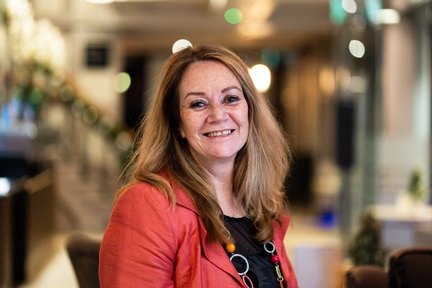Boris Johnson scraps Covid self-isolation and testing rule in nurseries
Nurseries have mixed feelings about the decision by Boris Johnson to scrap twice weekly Covid tests and self-isolation rule if Covid positive in childcare settings, as part of his ‘Living With Covid’ plan.
![]() Prime minister Boris Johnson announces his 'Living with Covid' plan. Credit: Sky News
Prime minister Boris Johnson announces his 'Living with Covid' plan. Credit: Sky News
Effective from 21 February, Mr Johnson has ditched the policy for staff in childcare settings to undertake twice weekly asymptomatic testing. From 24 February, the government is also ditching the legal requirement for people to self-isolate following a positive test.
The move has caused concern in the early years sector as Covid cases are still high in nurseries, with 5,189 childcare providers reporting cases to Ofsted in week commencing 24 January.
Purnima Tanuku, chief executive of National Day Nurseries Association (NDNA), said: “On the one hand, nurseries are really struggling to remain open as so many staff members have been off isolating or poorly.
"Removing the requirement to isolate could really help nurseries, especially when recruitment and retention is a huge issue for the whole sector.
“However, nurseries are also alarmed at the high numbers of cases affecting both children and practitioners. These won’t go down overnight because in nurseries, unlike other workplaces, it is impossible for people to socially distance, as anyone with a toddler will know. This will be a source for worry for any vulnerable members of staff.
“It’s also a concern for the businesses because they lose parental income when children are off nursery due to Covid or if the nursery does not have enough staff members to open safely."
Ms Tanuku feels more support should have been given to the sector to cope with the high number of Covid cases.
Mr Johnson told MPs in Parliament that from 1 April - “when Winter is over and the virus will spread less easily” - free symptomatic and asymptomatic testing for the general public will end.
He promised to continue to provide free symptomatic tests to the oldest age groups and those most vulnerable to Covid.
The £500 self-isolation support payments which are designed to help low-wage workers afford to self-isolate, will also be scrapped. The Prime Minister said Covid provisions for Statutory Sick Pay can still be claimed for an extra month.
PM: ’We don’t need laws to compel people to be considerate’
The PM said the UK had “passed the peak” of the Omicron wave, with cases falling, hospitalisations in England falling and now fewer than 10,000 and the link between infection and severe disease substantially weakened.
In his statement to the House of Commons, Mr Johnson told MPs: “We have a population that is protected by the biggest vaccination programme in our history.
“We have the antivirals, the treatments, and the scientific understanding of this virus, and we have the capabilities to respond rapidly to any resurgence or new variant.
“We don’t need laws to compel people to be considerate of others.
“So let us learn to live with this virus and continue protecting ourselves without restricting our freedoms.”
Testing in education settings will not end completely, as regular testing is still advisable for specialist special educational needs settings, alternative provision and SEND units in mainstream schools and colleges.
Paul Whiteman, general secretary of school leaders’ union, NAHT, which represents over 34,500 school leaders in early years, primary and secondary schools, warned Mr Johnson’s announcement could create conflict between teachers and parents.
He said: “Judging from what the Prime Minister has said, the government has replaced the legal responsibility for testing and isolation with a personal responsibility to keep each other safe.
“Schools and families will still need to co-operate to keep schools open. Access to lateral flow tests is an important part of any plan to live with Covid as we move forward.
"It’s crucial that they remain free for all pupils, or the consequences and disruption for disadvantaged pupils, in particular, could be severe.
Could create 'chaotic situation' for teachers
“What is absolutely essential now is that government very quickly provides clear and unambiguous guidance so that schools and parents have a clear understanding of what to do should a child or member of staff have covid.
"Without that clarity, there is a real risk the government could create a chaotic situation in schools and put school leaders in an impossible position.”
Nursery and school leaders have argued that staff and pupils are often absent not just because they test positive but because they are ill with Covid.
Mary Bousted, joint general secretary of the NEU teaching union, said that “it is not the case that we have defeated Covid, nor that everyone can ‘live’ with it”.
The union leader said the government’s own attendance data showed the “high disruption caused by illness and isolation” and that the Omicron variant is still present in schools as well as nurseries.
Latest News
 24-Apr-24
Find out the top nurseries in 2024
24-Apr-24
Find out the top nurseries in 2024
 06-Jun-23
UK's top nurseries in 2023 revealed
06-Jun-23
UK's top nurseries in 2023 revealed
 16-Dec-22
Winter Wonderland: Ice sculptures, aerial acrobatics and white knuckle rides
16-Dec-22
Winter Wonderland: Ice sculptures, aerial acrobatics and white knuckle rides
 28-Nov-22
5 mins with Caroline Wright, early childhood director at Bright Horizons
28-Nov-22
5 mins with Caroline Wright, early childhood director at Bright Horizons
 25-Nov-22
Camilla gives nursery children Paddington bears left as tribute to Queen Elizabeth II
25-Nov-22
Camilla gives nursery children Paddington bears left as tribute to Queen Elizabeth II